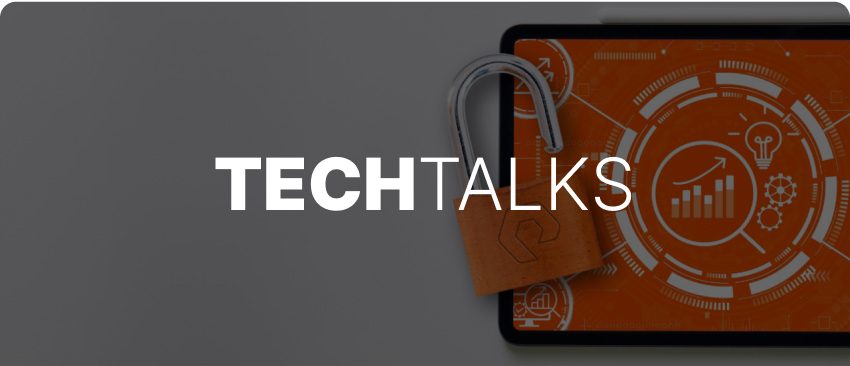ブランドの評判、知的財産(IP)、特に顧客や企業データなどの無形資産は、最近ではビジネス価値の約 90% を占めています。この傾向は、デジタル・データやその他の形態の情報が現代社会で急激に増加していることが主な要因です。石油会社やエネルギー会社のような伝統的に評価されてきた企業が、データの重要性が増すにつれてトップの座を失う一方で、Amazon や Meta などのデータ駆動型企業は、現在、中心的な役割を果たしています。
では、どうすればデータを処理し、組織にとっての価値を理解できるのでしょうか。その答えは、データ評価にあります。ビジネス・データの重要性と、株式アナリストが価値を決定する方法を理解することです。
株式アナリストがデータの価値をどのように判断し、データの価値を向上させ、データを最大限に活用するかについて詳しく見ていきましょう。
データ資産とその価値
株式アナリストがデータをどのように評価するかを理解するには、データ資産がどのように定義されているかを理解することが重要です。データ資産を定量化するには、以下が必要です。
- 明確で識別可能:データ資産には、データベースからの多くのファイル、テーブル、レコードが含まれる場合があります。
- 将来の経済的利益を約束:データ資産には、自身や他者のために将来のキャッシュフローを生み出す可能性のある有用なアプリケーションが必要です。
- 組織の管理下に置く:適用法に準拠する方法でデータを使用する権利を有する必要があります。また、不正アクセスからデータを保護するためのシステムを導入する必要があります。
データ資産は、情報と経済の 2 つのカテゴリに分けることができます。情報データ資産は、財務データなど、企業の業績に関する知見を提供します。経済データ資産とは、顧客データなど、収益化が可能な資産です。
データ資産は、他の貴重なリソースと同様に、独自の価値を持つことに留意してください。この価値は、データによって決定されます。
- 精度:どれだけミスがないか
- 希少性:どれだけユニークか
- 有用性:そのデータが意思決定にどれだけ役立つか
データの価値を判断する方法
データ評価フレームワークは、データ資産の価値を理解するために役立つため、データ資産への投資方法についてより適切な判断を下すことができます。フレームワークにはいくつかありますが、それらは全て、2 つの基本的な質問に答えることをめざしています。
株式アナリストは、データの価値を評価するためにいくつかの異なる方法を使用します。最も一般的な方法は、市場アプローチです。比較可能な企業を対象にデータ資産の価値を見積もっています。もう 1 つの標準的な方法は、データ資産の価値を代替コストで見積もるコスト・アプローチです。
これらの方法(および他の方法)には長所と短所があるため、株式アナリストは、複数の技術を組み合わせてデータを評価することができます。
データ品質だけでなく、管理方法も重要
容易にはアクセスできない金庫に現金を預けますか? あるいは、小さすぎる金庫を手に入れることで、節約できる金額を制限しますか? 可能性は低いでしょう。なぜなら、お金を成長させ、自分のために働かせ、必要なときに利用できるようにしたいからです。データについても同じことがいえます。データ管理が向上すればするほど、データの価値は高まります。
優れたデータ管理には、データ・ガバナンスが含まれます。データ・ガバナンスとは、正確で一貫性があり、アクセス可能なデータを確保するためのポリシーと手順の作成と実施をさします。データ・ガバナンスには、データ・セキュリティと不正アクセスからのデータ保護も含まれます。
データ管理は継続的なプロセスであり、一度限りのイベントではありません。データの変化と成長にあわせて、データ管理の実践も必要になります。
データ評価を行う理由
データ資産とは何かを理解し、それらをどのように評価するかを理解しています。しかし、なぜ悩むのでしょうか。
主な理由はいくつかあります。
- 新しいユースケースの発掘:データを再評価することで、データの使用法や収益化のための新たな方法を見つけることができます。
- 会社の価値を高める:会社の売却や資本調達をご希望の場合、データ評価は、データの価値を把握し、それに応じて資産を価格設定するのに役立ちます。
- データの価値をさらに高める:データの使用についてより適切な判断をしたい場合、データ評価は、さまざまなプロジェクトにどのような投資利益率(ROI)が期待できるかを理解するのに役立ちます。
- データに過剰に支出していないかの確認:。データ評価は、データに過剰に費やしているかどうかを理解するのに役立ちます。例えば、正確性や有用性に欠けるデータに高額な費用を支払っている可能性があります。
- データに関連するリスクの理解:データ評価は、データに関連するリスクを特定するのに役立ちます。例えば、データが漏えいしたり盗まれたりするリスクがあります。
- 他社との比較によるベンチマーク:この実践は、データ資産の観点から、会社の現状を把握するのに役立ちます。
つまり、データ評価は、データ資産の隠れた価値を引き出すのに役立ちます。また、企業にとっての価値を高めることができます。
データの価値を知ることがビジネスの成功の可能性を高める
データは貴重な資産ですが、得られる知見によってこそ価値が決まります。データの価値を最大限に引き出すには、データの価値を高める方法を理解する必要があります。
データ評価は、データ資産の価値を把握し、データ資産の使い方をより的確に判断するのに役立ちます。データからより多くの価値を得たい場合は、まずはデータを評価することから始めましょう。
データの価値を引き出すための次のステップは、この貴重な資産をどのように管理しているかを見ることです。詳しくは、ブログ「データが現金のように価値があるなら、そのように扱う時だ」をご覧ください。





